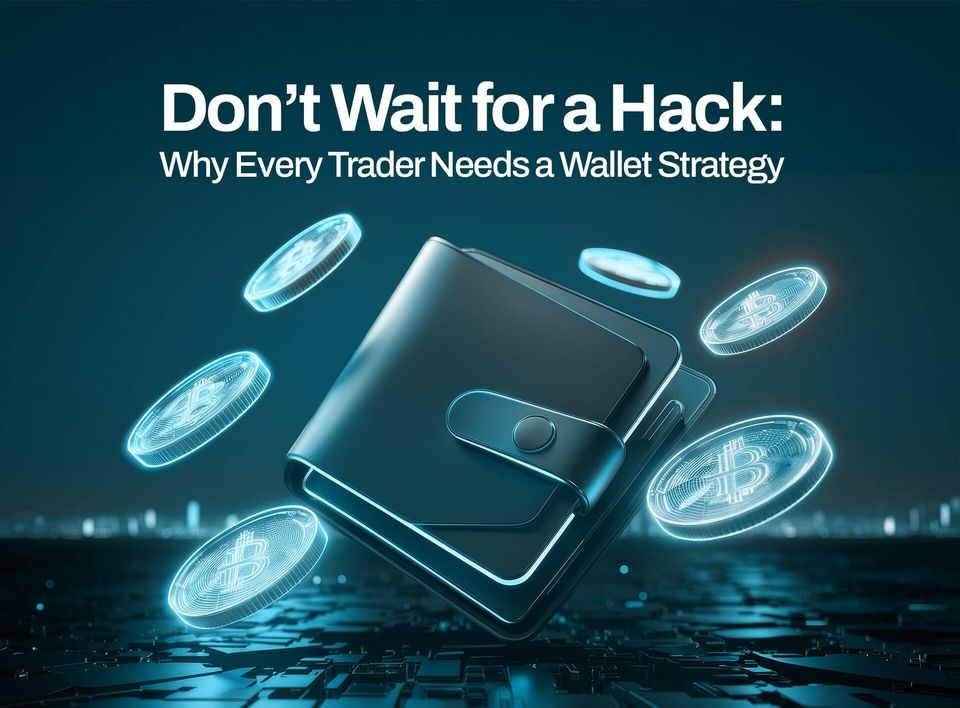What Is Scalp Trading in Crypto?
Scalp trading in crypto is a short-term strategy where traders aim to make small profits by taking advantage of quick price changes.

Table of Contents
- What is scalp trading in crypto?
- How does scalp trading work?
- How do you set up a crypto scalping trading strategy?
- How easy is scalp trading in the cryptocurrency market?
- Is crypto scalp trading worth trying?
- Pros and Cons of Scalp Trading Cryptocurrency
- FAQS
There are numerous ways to make money from cryptocurrency, and one of them is scalp trading.
This article explains how scalp trading works, how to get started, its pros and cons and if it’s worth the effort.
What is scalp trading in crypto?
Scalp trading in crypto is a short-term strategy where traders aim to make small profits by taking advantage of quick price changes. They buy crypto at a lower price and sell it at a slightly higher price.
This approach involves making frequent trades and capitalising on the volatile nature of cryptocurrencies that can change rapidly. By accumulating small profits over time through many trades, scalp traders aim to generate profits from these small price fluctuations.
How does scalp trading work?
Scalp trading is a strategy where traders make quick trades to profit from small price changes. Traders look for opportunities where the buying and selling prices of a cryptocurrency are slightly different. They aim to buy at a lower price and sell at a slightly higher price to make a profit.
For example, let's say a trader notices that the bid (buying) price for Bitcoin is $9,800 while the ask (selling) price is $9,810. They quickly buy Bitcoin at $9,800 and then sell it at $9,810, making a $10 profit from this small price difference. They repeat this process multiple times throughout the day to accumulate profits.
Scalpers (this is the term for traders who participate in scalp trading) use various techniques to make money:
- Leverage is one method where traders borrow additional funds to increase their trading position and potentially amplify their profits. For instance, a scalper might use $1,000 of their own money and borrow an additional $9,000 to trade with a total of $10,000.
- Another technique is range trading. Scalpers look for price ranges where a cryptocurrency is trading and aim to buy at the lower end of the range and sell at the higher end. For example, if a scalper notices that a cryptocurrency consistently trades between $9,700 and $9,900, they would buy when the price is near $9,700 and sell when it reaches $9,900.
- Scalpers also take advantage of the bid-ask spread, which is the difference between the highest price a buyer is willing to pay and the lowest price a seller is willing to accept. By buying at a lower bid price and selling at a higher ask price, scalpers can profit from this price difference.
- Lastly, some scalpers engage in arbitrage. They take advantage of price differences between different cryptocurrency exchanges. For instance, if Bitcoin is priced at $9,800 on one exchange and $9,820 on another, they can buy on the lower-priced exchange and sell on the higher-priced exchange to make a profit.
How do you set up a crypto scalping trading strategy?
To set up a crypto scalp trading strategy, you can follow these steps:
1. Choose the trading pairs: Pick the cryptocurrencies or assets you want to trade. Make sure to consider their volatility and liquidity, as they can significantly impact your trading results. Volatility is about how much an asset's price goes up and down, while liquidity is about how easily you can buy or sell that asset without causing big price swings.
2. Select a trading platform: Find a platform that supports the trading pairs you've chosen. Look for factors such as trading fees, user interface, and customer support to select a platform that suits your needs.
3. Consider using trading bots: Scalping relies on speed, and using software or trading bots can help you stay ahead of the game. These tools can automate trades, ensuring quick execution and reducing the risk of manual errors.
4. Experiment with different strategies: It's essential to understand and practice different trading techniques before diving into scalp trading. Try out various strategies mentioned earlier, such as leveraging, range trading, and taking advantage of bid-ask spreads. This experimentation will help you find a strategy that suits your trading style and maximises your chances of success.
How easy is scalp trading in the cryptocurrency market?
Scalp trading involves making quick trades and profiting from small price changes; hence, it demands quick decision-making and constant monitoring. It can be more challenging to execute it effectively compared to longer-term trading strategies like HOLDing and dollar cost averaging.

However, with practice and experience, scalping in the cryptocurrency market can become easier. As you become familiar with market patterns, develop efficient strategies, and improve your risk management skills, you'll become more comfortable with the process.
The key is to dedicate time to learning and improving your skills. Consistently practice scalping with small trading amounts to gain confidence and refine your approach. Stay disciplined, adapt to changing market conditions, and continuously educate yourself to improve your scalping abilities.
Remember, while the initial learning curve may be challenging, you can become more proficient at scalping in the cryptocurrency market with persistence and dedication.
Is crypto scalp trading worth trying?
When determining whether crypto scalp trading is worth it, there are a few things to consider.
- Becoming a successful crypto scalper requires developing your chart analysis skills and understanding various trading strategies. This takes time and dedication to learn and improve upon.
- Scalp trading can be intense and demanding, as it involves making quick decisions and closely monitoring the market. It can be mentally draining for unseasoned traders.
- Since the profits from each trade tend to be small, you may need to have a larger capital to make significant gains. It's important to consider your risk tolerance carefully and determine if the potential returns are worthwhile for your specific investment strategy.
- Everyone's trading approach is different; what works for you may not work for another. It's crucial to find the techniques and strategies that align with your own skills, risk tolerance, and financial goals.
- Risk management is a vital aspect of scalp trading. How you manage risk can significantly impact your overall performance. It's essential to prioritise risk management over solely focusing on entry and exit points.
Ultimately, whether crypto scalp trading is worth it depends on your dedication to learning, ability to handle the demands of quick trading, risk management skills, and alignment with your overall investment approach.
Pros and Cons of Scalp Trading Cryptocurrency
Like any type of trading, scalp trading has its pros and cons:
Pros
1. Frequent Opportunities: Cryptocurrencies tend to have a lot of ups and downs, which means more chances for scalp traders to make profits.
2. Lower Risk: Scalping involves making quick trades, so scalpers are exposed to the market for shorter periods. They have less risk of being affected by sudden regulatory changes or the overall economy.
3. Mentally Easier: Some traders find it less stressful to take small profits rather than waiting for bigger ones. With scalp trading, they get to enjoy those smaller wins without the anxious wait for long-term targets to be reached.
Cons
1. Risk of Significant Losses: Scalping requires discipline and sticking to a strategy. If scalpers don't manage their risks properly, high leverage can quickly wipe out their trading account in just a few trades.
2. Time-Consuming: Scalping requires constant monitoring of the market, which can be tiring and demand a lot of time and energy. Quick decision-making is also necessary, which can be draining for some traders.
3. High Costs: Frequent trading comes with fees like spreads and transaction costs. These expenses can eat into profits and make it harder for scalpers to make a substantial amount of money.
Final Thoughts
Scalping, like any trading strategy, has its upsides and downsides.
One advantage is that it involves smaller positions, which means the risk is lower. Scalpers don't aim to profit from big price movements; instead, they focus on taking advantage of small price changes that happen often.
Scalping also requires advanced analytical skills to navigate the market effectively. Traders need to be attentive to price fluctuations but don't necessarily have to be patient for long-term gains.
In a nutshell, it's important to have realistic expectations, be skilful in analysis, and consider the costs involved when scalp trading.
FAQS
Q: What is scalp trading in crypto?
A: Scalp trading in crypto is a short-term strategy where traders aim to make small profits by taking advantage of quick price changes.
Q: How does scalp trading work?
A: Scalp traders buy at a lower price and sell at a slightly higher price to profit from small price changes.
Q: What are some techniques scalpers use to make money?
A: Scalpers use leverage, range trading, bid-ask spreads, and arbitrage to profit from crypto price movements.
Q: How do you set up a crypto scalping trading strategy?
A: Setting up a strategy involves choosing trading pairs, selecting a platform, considering trading bots, and experimenting with different techniques.
Q: Is scalp trading easy in the cryptocurrency market?
A: Scalp trading demands quick decision-making and constant monitoring, making it more challenging than longer-term strategies.
Q: Is crypto scalp trading worth it?
A: Whether scalp trading is worth it depends on your skills, risk tolerance, and alignment with your investment goals.
Q: What are the pros of scalp trading crypto?
A: Frequent opportunities, lower risk exposure, and potentially less stressful trading are some pros.
Q: What are the cons of scalp trading crypto?
A: High risk of significant losses, time-consuming, and high trading costs are some cons.
Q: How do I manage risk while scalp trading?
A: Risk management involves setting stop-loss orders, position sizing, and having a clear exit strategy.
Q: What is leverage in scalp trading?
A: Leverage allows traders to control a larger position size with a smaller amount of capital, increasing potential gains but also risks.
Q: Which crypto is best for scalp trading?
A: Bitcoin, Ethereum, and other major cryptocurrencies with high liquidity are often preferred for scalp trading.
Q: How do I choose a trading platform for scalp trading?
A: Consider factors like trading fees, user interface, customer support, and supported trading pairs when choosing a platform.
Q: What is the bid-ask spread, and how do scalpers use it?
A: The bid-ask spread is the price difference between the highest price a buyer is willing to pay and the lowest price a seller is willing to accept. Scalpers profit from this price difference.
Q: What is range trading in scalp trading?
A: Range trading involves identifying price ranges in which a cryptocurrency is trading and buying at the lower end and selling at the higher end.
Q: Can I scalp trade with a small amount of capital?
A: Scalp trading is possible with a small capital amount, but trading fees and risk management are important considerations.
Q: Is scalp trading good for beginners?
A: Scalp trading is often more suitable for experienced traders due to its fast-paced nature and risk.
Disclaimer: This article was written by the writer to provide guidance and understanding of cryptocurrency trading. It is not an exhaustive article and should not be taken as financial advice. Obiex will not be held liable for your investment decisions.




